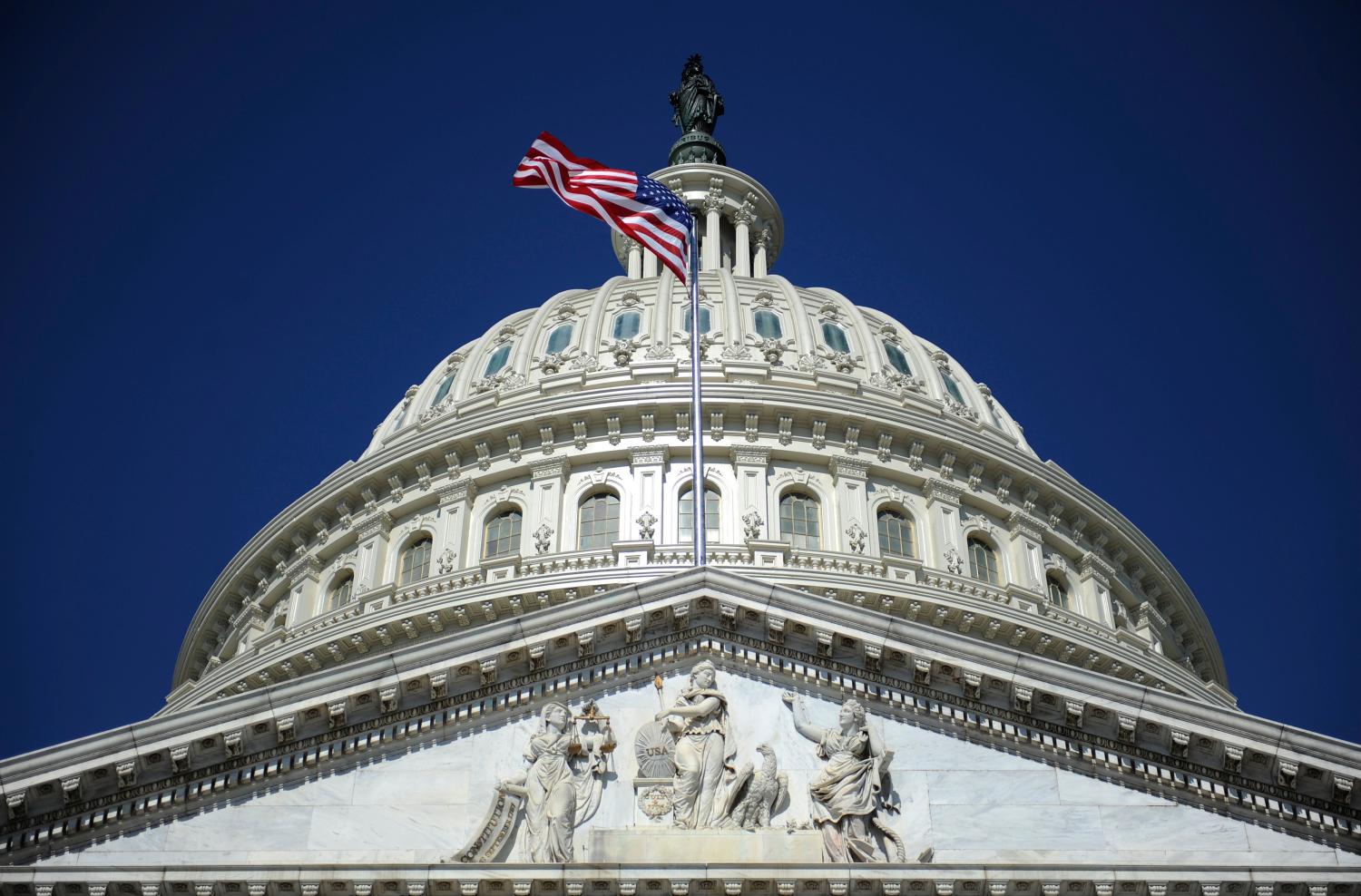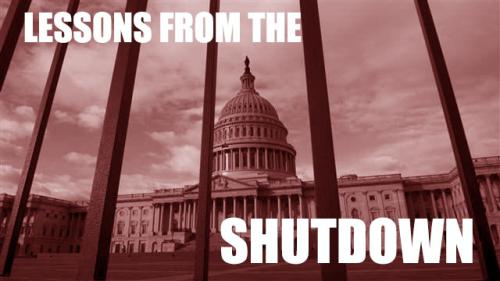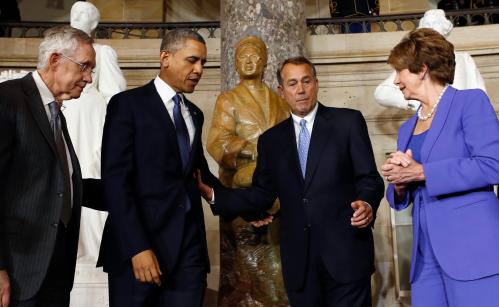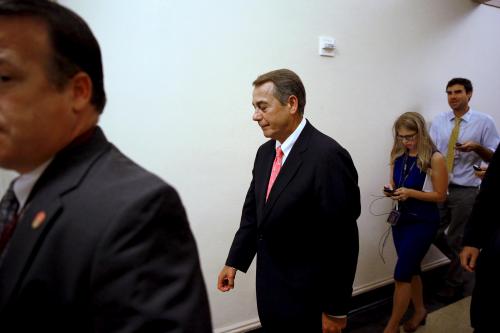Phil Wallach:
Two factors have combined to make the debt ceiling half of our current impasse very difficult to end (which will remain true even if a clean short-term increase delays the day of reckoning for six weeks). The first is the indecisiveness and vagueness of Republican demands, which have never snapped into focus and which have often veered away from fiscal issues entirely. The second is the President’s strong stand against negotiating in conjunction with raising the debt ceiling. In principle, the President is on solid ground: our country would be made stronger, including fiscally, if we abolished (or neutered) the debt ceiling. If our legislative leaders would extend the “McConnell Rule” from 2011 into perpetuity, that would be an enormous service to our nation’s future well-being. But in practice, this may not be the right moment to stand on principle; Presidents have been successfully bullied in debt ceiling negotiations before, and it did not signal the downfall of our Constitutional order.
If the President decides he is willing to accept some reasonable provisions (currently in short supply) attached to an increase of the ceiling he should be allowed to do so without commentators proclaiming the end of the Republic. Supposing the President holds firmly onto his no-negotiating position, the trick will be to find a compromise he could sign onto while (halfway) credibly maintaining that he hadn’t “negotiated.” The distinction between substance and process would offer the best hope, and could allow us to replicate the debt ceiling increase (technically styled a “suspension”) from earlier in 2013. Republicans could pick their favorite “process” innovation that promises to get our budgeting process moving in some mutually-desired direction, and Obama could agree to it while maintaining he hadn’t given any substantive ground. Heck, if such an agreement led to fast-tracking long-overdue corporate tax reform, it could even end up doing the country some real good!
It is worth separately putting in a good word for can-kicking. Many correctly note that our country continues to face serious long-term fiscal challenges, and we would be much stronger if we could resolve those today. But our (current politicians’) ability to do so is not a certainty by any means, and the chance that we could forge a lasting compromise as a result of flirting with an impending crisis is remote. On the other hand, the immense lasting damage done by failing to raise the debt ceiling today is a certainty—however you think the “end game” would play out.
On the other side, debt ceiling opponents are right to say that it is insane for the United States of America to lurch from one artificially-created crisis to the next, and some of them take this point to its logical end: unless Republicans offer a long-term clean increase of the debt ceiling, Obama should reject any deal. Once again, however, this is no time for logical ends: the desire to avoid a crisis in the medium- and long-term should never lead us to insist on having a crisis today. (Doing so would be like shooting an appendicitis patient for refusing to have an appendectomy.) Because the debt ceiling is so completely unattached to any worthwhile “ethic of ultimate ends,” let us hope our political leaders embrace what Weber called the “ethic of responsibility” by looking first and foremost to the predictable results of their actions.
Bill Galston:
I recently discussed this issue in my weekly column for the Wall Street Journal entitled, “Time for a Cease-Fire in the Washington War.” Below are a few excerpts.
In the classic game of chicken, two cars are racing toward a one-lane bridge from opposite directions. If one swerves to avoid a collision, the other wins. If both swerve, neither wins, but both live to race again. If neither swerves, the cars crash.
Right now, that’s the structure of the struggle over the debt ceiling. Neither party is swerving or even slowing down. Each driver is assuming that the other must change course, and both have their reasons. President Obama and Senate Democrats believe that the public is more inclined to blame congressional Republicans for the impasse and that every day that passes will ratchet up the pressure on House Speaker John Boehner. Republicans are betting on public concerns about deficits and debt, on the continuing unpopularity of the Affordable Care Act, and on what they see as the president’s unwillingness to defend his own red lines when the going gets tough.
…
In the current confrontation between House Republicans and President Obama, as in the Cuban missile crisis, neither side can force the other to surrender unconditionally, and the effort to achieve that result could lead to disaster. The alternative is a negotiation in which each side sets aside demands the other cannot accept. For now, Republicans would abandon their effort to thwart the Affordable Care Act, while Democrats would set aside their demands for additional revenues. The parties would agree to a cease-fire in place—a full-year continuing resolution that tracks current law. And they would agree to use the breathing space that a cease-fire would provide to restart long-stalled negotiations on strategies for fiscal stabilization and economic growth.
The Brookings Institution is committed to quality, independence, and impact.
We are supported by a diverse array of funders. In line with our values and policies, each Brookings publication represents the sole views of its author(s).













Commentary
What’s in a Deal? Possible Solutions to Shutdown and Default Crises
October 10, 2013